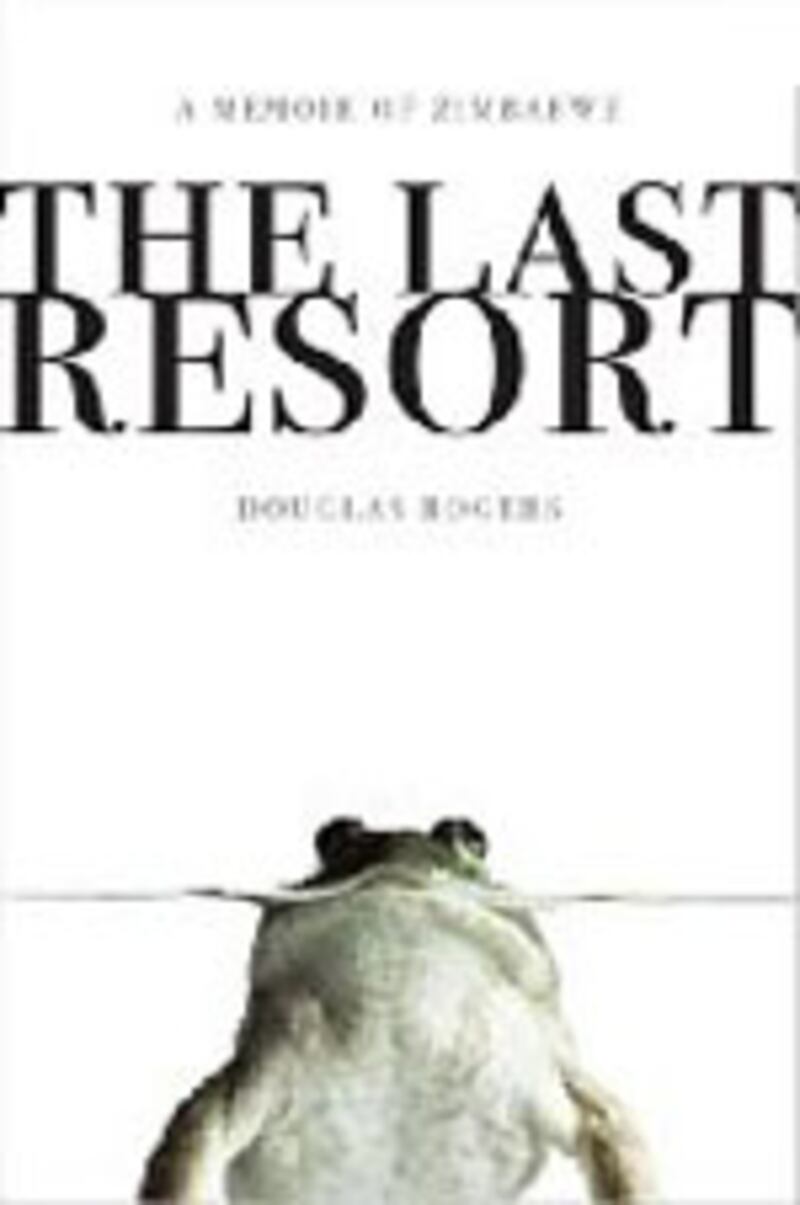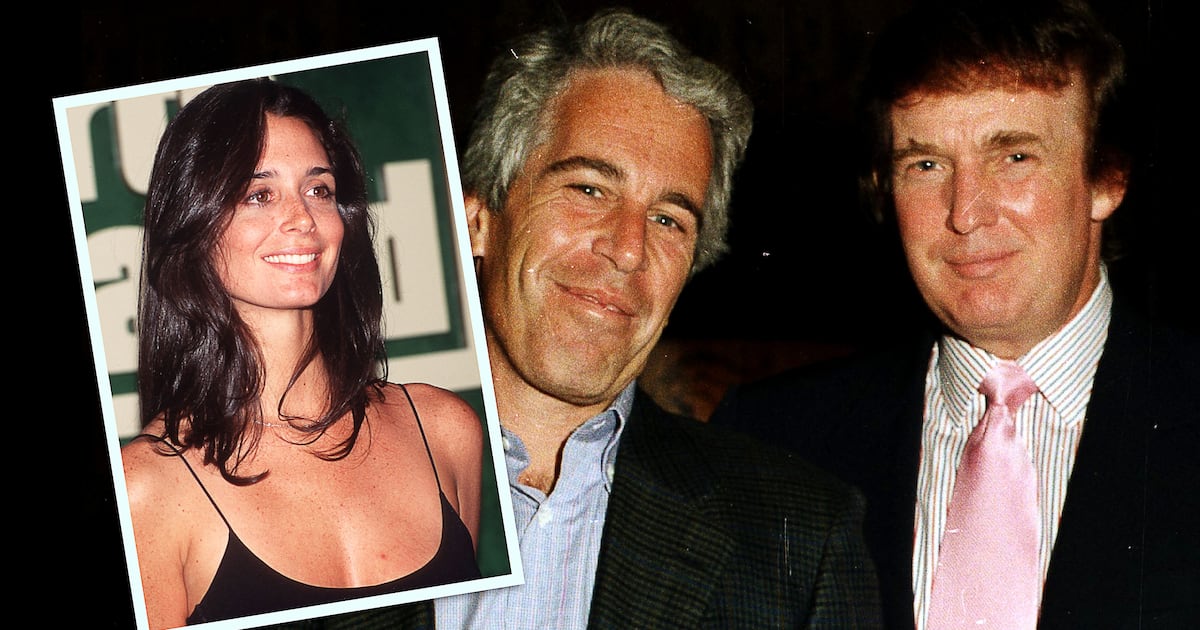
In 2005, a few months before his marriage in New York, Douglas Rogers returned to his parents’ rural resort in Zimbabwe to see how they were faring under the chaotic and brutal regime of Robert Mugabe. On his first night back, much to his surprise he discovered that they had not told him how exactly they had adapted to their circumstances. What follows is the story of how he learned about their new situation.
I went to bed early but was woken at 11 that night by the distant thud of music drifting through my window. For a second I thought I was back in Brooklyn and panicked that Grace had turned on our iPod speakers and was about to wake our landlord, who lived two floors above us. Then I smelled the mangos on the trees outside and felt the lumps in the mattress.
I was very much at home.
ADVERTISEMENT
The music was indistinct at first, a faraway muffled sound with a repetitive bass line. But soon my ears, like eyes getting used to the dark, began to make out the sound. It became clearer as I lay there: the unmistakable, funky, low-down dance beats of New York rapper 50 Cent’s hit song “In da Club.”
Very strange, I thought. Had my mom traded in her Neil Diamond records for Get Rich or Die Tryin’?

I got out of bed, put on jeans, and walked out onto the polished cement veranda. A full moon hovered over the valley. Bougainvillea dripped down the Mediterranean arches of the veranda, silhouetting the tall acacia trees that ran along the main road below. Through wide-open French doors to the right, Mom and Dad were fast asleep in their bedroom, the 12-gauge leaning against Dad’s bedside table.
It still shocked me that they slept with everything wide open. Despite their new security—the guard and the electric fence—the only door to the house that was locked was the one in the study. The front of the house had no doors. It seemed to me an open invitation to come get us. It wouldn’t have been hard. You could bribe the guard, and while there was the electric fence to climb, all you would have to do would be to wait for one of the numerous power cuts. And since Tello was no longer around, there would be no barked alarm to warn of intruders.
Question was, could my dad get to the gun before they got to him?
At the same time, my parents’ old philosophy—“If you lock things up, people will think you have something to steal”— appeared to be working. They had been left alone. It did them no harm, either, that everyone in the valley knew by now that Dad had a gun on him and wasn’t afraid to use it. The squatters had found that out when he blasted away at their hounds.
50 Cent had given way by now to R. Kelly’s soaring ballad “I Believe I Can Fly,” a popular hit in New York, and apparently here. The music was coming from the backpacker camp.
I got a flashlight and keys to the front gate from the milk pail in the kitchen next to the copper coffeepot, from where the albino frog, all-seeing, stared at me reproachfully. Then I wandered on down, through the Rhodes grass, under the avocado trees, and across the wooden footbridge.
When I had started going down to the camp at night on my last visit, this walk made me nervous. There were snakes in the grass, bats in the branches. What if I bumped into those bandits coming to steal from the cottages? But now I found myself enjoying it: the full moon, the sound of crickets, the long grass already wet from the evening dew. Best of all, there would be a cold beer at the other end, cigarettes, and music. Music! What was happening down there? Had tourists returned to the valley? The hip-hop had given way to traditional beats, the jangling guitars of an Oliver Mtukudzi song.
The lodge appeared in its clearing, silhouetted in the moonlight. The last time I had seen Drifters it was empty, abandoned. Now, though, I saw something remarkable: It was close to midnight on a Thursday, and a dozen vehicles were parked on the lawn outside—SUVs, a white Pajero, a Land Rover with government plates. I watched a black couple emerge silently from one of the thatched chalets by the pool and amble up the wooden exterior stairwell toward the bar. The woman seemed drunk, a pair of platform shoes in her hand. The man walked ahead. I emerged from the leaves and followed.
Inside, I was blown away by the sight of about 20 black men and women drinking beer around the bar or slowly dancing to the music blaring from a sleek new hi-fi system behind the counter. No one showed any interest in my arrival, nor did I recognize anyone. I ordered a beer from the barman, a dashing kid in his early twenties with a shaved head. Where was John Muranda, who would normally be serving drinks if guests were around at this hour?
The barman introduced himself to me as Sydney.
“Hi,” I said, “I’m Douglas.”
“Douglas?” he boomed. “Mr. Rogers’s son? I know of you. Welcome!”
I had no idea who the hell he was.
“You are the one who lives in America,” he said. “How is it there?”
“It’s good,” I told him.
“How is Puff Daddy?”
I laughed.
“Not sure,” I said. “But 50 Cent is fine.”
I wasn’t that familiar with the hip-hop pantheon, but I had recently seen 50 Cent and Eminem play in Detroit when I was there on a travel writing assignment for the London Times, which was how I knew the lyrics to “In da Club.”
“Jay-Z?” he asked.
“I have no idea, man. I never meet these guys.”
He wasn’t giving up.
“Snoop Dogg?”
“He’s still a gangster.”
“Aish,” said Sydney, “tight!”
He slapped my hand with his and snapped his fingers.
I asked where Muranda was.
“Muranda? John Old? The sekuru? He is sleeping. John Agoneka, he is sleeping, too.”
He looked at the swaying patrons before him.
“These people— they are not sleeping. They are drinking! Ha- ha!”
I ordered a Zambezi and a box of Madisons. I had given up smoking in New York, but something about being out here made me pick up my old habit. They tasted stale.
I was surprised to find the bar in such good condition. A secondhand television had been attached to the wall of the chimney in the middle of the floor, and it was tuned to ZTV, although the sound was off. The president was attending a ceremony in some village. Women wearing his face on their skirts were ululating. He waved his little fist.
The only people not drinking were two downcast youths, no more than 20 years old, sitting on stools in the corner, arms crossed, watching the TV. One wore a Hawaiian-style shirt, except instead of palm trees it bore the many faces of Saddam Hussein. The other had on a soccer shirt emblazoned with the face of David Beckham. In contrast to the other customers, a couple of whom were in suits with wives in high heels and glamorous dresses, they wore mud-stained rubber sandals. If this were a Harare nightclub, the kids would be gatecrashers.
I drank my beer and smoked cigarettes. A moth singed itself on the overhead fluorescent.
At the far end of the bar, a slightly overweight woman in a tight denim miniskirt that barely constrained her bulging thighs smiled and winked at me. I laughed and gave her a thumbs-up, felt stupid for doing so, and sipped my beer. Then, from my left, a tall, beautiful girl, graceful as a gazelle in skintight jeans and high heels, slinked over to me.
She said sulkily: “Buy me beer.”
I bought her a beer. She pressed her legs against the bar. Then, in one slick move, she took a swig from the beer in her left hand and slid the long-fingered nails of her other hand between my legs and started stroking my crotch. I choked and spat out the sip, the liquid dribbling down my chin.
“Sixty thousand,” she said, staring straight ahead. “Let’s go.”
I tried to gather my formerly smooth composure. What was the black-market exchange rate these days? Since I was paying three thousand for the beers, I worked out that sixty thousand must have been about US$20.
The girl was stroking my leg now.
“Sorry,” I said. “I’m about to be married. But I’ll buy you another beer.”
I looked around at the dance floor and saw that other men were similarly engaged with various women, dancing close. A pattern developed: a couple would disappear for 15 minutes and then return; the same woman might then leave with a different man. It was a conveyer belt.
Sydney saw me checking out the scene.
“Douglas,” he said, shaking his head. “These women—they are not their wives.”
“No, I don’t think they are,” I told him.
The gazelle was at my side again, and I bought her a third beer. The denim miniskirt was walking out with one of the gents, a drunk in a suit. Saddam and Beckham ignored it all and watched soundless images on TV.
The president was at a political rally now, still making use of his fist.
“Sydney, who are those guys?” I said, nodding at the two.
“Settlers,” he said. “New farmers from across the road. Maybe you can say they are squatters. They come here for TV, then they go back.”
I drank another Zambezi and smoked a last cigarette. Then I complimented Sydney on his music and said goodnight.
The gazelle followed me to the door.
“Fifty thousand?” she asked.
She was going down in price, much like the currency itself.
“I’m sorry, I can’t.”
“Come back next week?”
“Maybe.”
Walking past a chalet on the way home, I heard the moaning of people humping. For some reason I thought of Lonely Planet. The bible for international budget travelers had written glowingly of Drifters over the years and had helped make it the hot spot it became on the Cape to Cairo backpacker trail. I wondered what a new edition might make of the current scene: Pizzas have given way to prostitutes at this rustic lodge in the beautiful Eastern Highlands. Comfortable chalets are ideal for coupling, even if the beds are a bit narrow, but the women in the bar are friendly and charge a bargain rate. Good music, too.
My parents would be horrified.
Plus: Check out Book Beast for more news on hot titles and authors and excerpts from the latest books.
Douglas Rogers is an award-winning journalist and travel writer. He has written for the Los Angeles Times, the Washington Post, Travel & Leisure, Condé Nast Traveler, the Guardian, the Daily Telegraph, and the London Times. He was born and raised in Zimbabwe and now lives in Brooklyn, New York.




